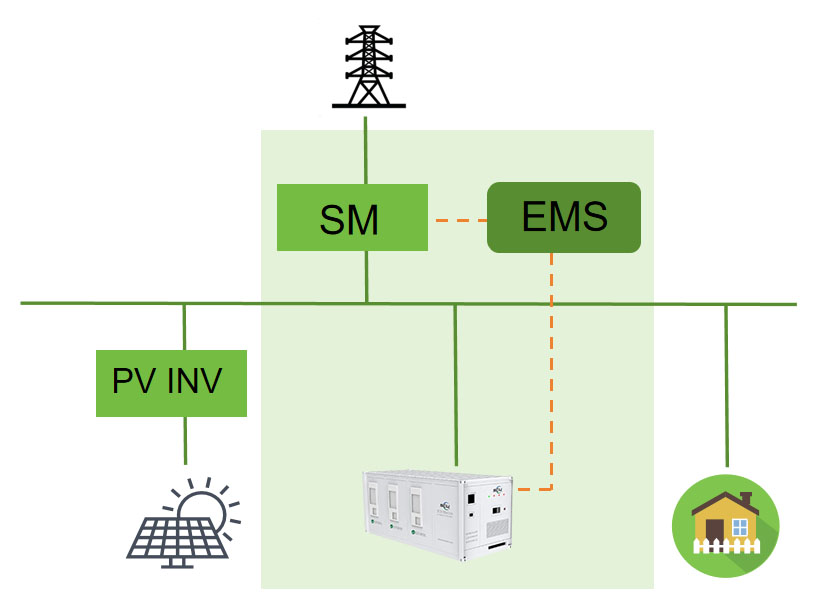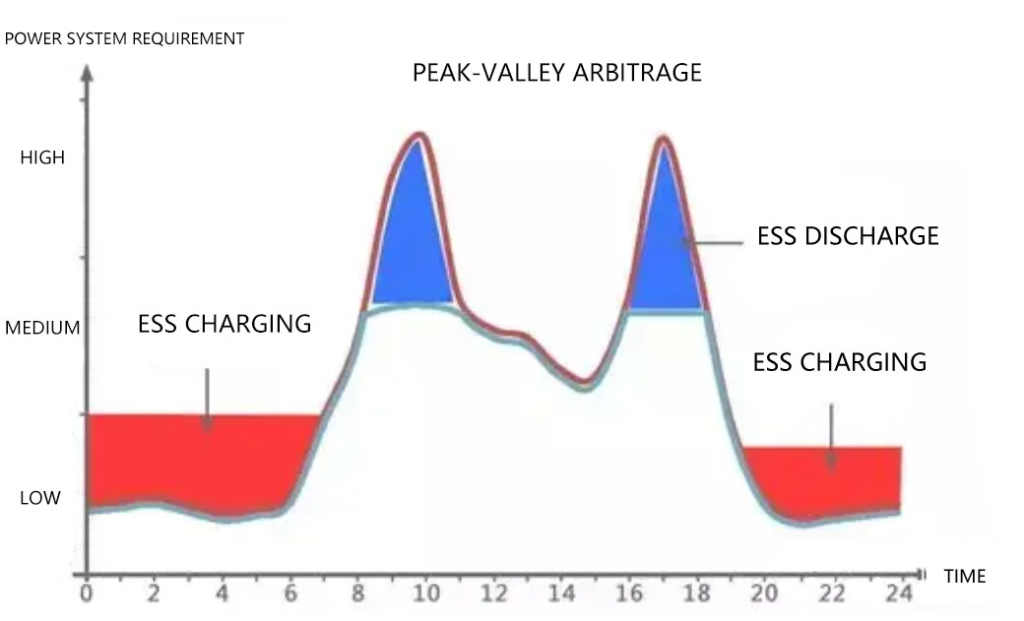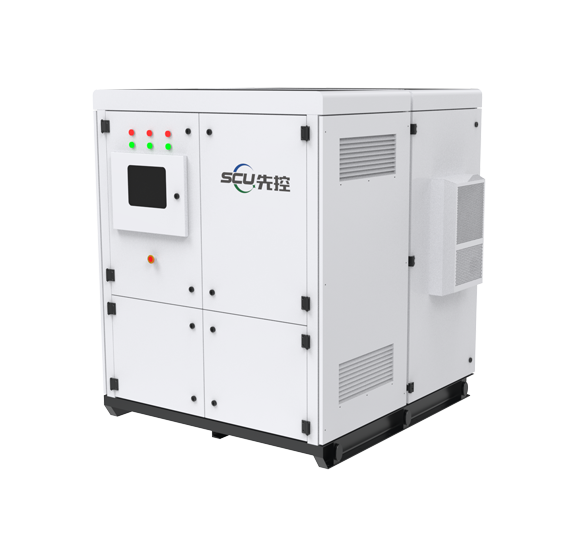The lighting system of electronic equipment supermarkets provides customers with a bright and comfortable shopping environment but consumes huge amounts of electricity. Large-area electronic screen displays such as TVs and computers consume a lot of power when running continuously. Powerful air conditioning and refrigeration equipment require large amounts of electricity to maintain the indoor environment. Payment, security, and monitoring systems are critical to operations and place demands on electricity demand. Considering power consumption, supermarkets need to adopt appropriate solutions to reduce electricity costs.

An electronic equipment supermarket in Europe, in response to rising energy costs and environmental pressure, chose to introduce SCU’s commercial and industrial energy storage system, GRES. The spontaneous self-use model of PV + energy storage comprehensively improved energy utilization efficiency and significantly saved energy costs.
Project Overview
Introducing photovoltaic systems is an earlier step taken by the supermarket to reduce environmental impact and save costs. However, to reduce energy costs further and improve power availability, SCU added an energy storage system. This upgrade includes supplying the electricity generated by photovoltaics directly to the load and storing the excess electricity in the battery, forming a self-contained photovoltaic + energy storage system, making the photovoltaic system more intelligent and efficient. When the photovoltaic system is unavailable due to weather or other reasons, the energy storage battery will automatically release the stored power to ensure continuous power supply to the load.
PV + Energy Storage System Configuration:
Photovoltaic capacity: 70kWp
Load requirement: 35kW
Energy storage system model: GRES, including MPPT module
Coupling method: DC coupling
Operating Principle
- PV power generation stage: During the day, the electric energy generated by the photovoltaic system is first supplied to the load of the electronic equipment supermarket, and the excess electric energy is used for storage.
- Energy storage power supply stage: At night or when photovoltaics are unavailable, the energy storage system automatically releases the stored power to meet the supermarket’s power needs. This process does not rely on mains electricity, reducing reliance on traditional electricity.

Economic & Environmental Benefits
- Reduce energy costs: The photovoltaic + energy storage system helps supermarkets effectively reduce power purchase costs, especially during the day when they can rely more on photovoltaic power generation.
- Coping with electricity price fluctuations: In Europe, electricity prices fluctuate significantly. Energy storage systems allow supermarkets to respond flexibly to fluctuations in electricity prices, choosing to store electricity when prices are low for use during peak periods.
- Improve energy efficiency: By storing excess electrical energy, it can be used when needed, thereby avoiding waste caused by excess power. This helps improve energy efficiency and reduce resource waste.
- Reduced carbon emissions: Using green energy not only reduces the supermarket’s carbon footprint but also earns it an environmentally friendly image and meets growing consumer concerns about sustainable operations.
This commercial energy storage solution not only provides reliable power support for supermarkets but also brings significant economic benefits, sets an industry benchmark for environmental protection and sustainable operations, and demonstrates the broad scope of green energy in the field of shopping malls and supermarkets. Application prospects.
The successful operation of this industrial and commercial energy storage project provides a powerful demonstration for other companies, proving that commercial energy storage can not only save energy expenses for companies but also help promote the sustainable development of clean energy. As this trend expands, expanding commercial energy storage in Europe will benefit businesses and the environment.

Application of C&I ESS in Shopping Malls and Supermarkets
Applying commercial and industrial energy storage in shopping malls, supermarkets and other places has brought significant benefits. Shopping malls and supermarkets have high power consumption, and their lighting, air conditioning, refrigeration and other systems have a huge electricity demand. By deploying energy storage systems, flexible management and scheduling of energy can be achieved, and electric energy can be stored during off-peak hours and released during peak hours, thereby reducing electricity costs and improving energy efficiency.
Shopping malls and supermarkets usually have irregular power demand, and energy storage systems can smooth power fluctuations and ensure a stable power consumption experience. Especially when power demand peaks, energy storage systems can quickly release power to help cope with peak loads and avoid energy waste and rising electricity costs caused by peak power consumption.
Commercial and Industrial energy storage systems also provide backup power for shopping malls and supermarkets. In the event of a sudden power outage or power failure, the energy storage system can be activated quickly to ensure the basic operations of shopping malls and supermarkets and prevent losses caused by power interruptions.
Generally speaking, the application of industrial and commercial energy storage in shopping malls, supermarkets and other places not only provides economic and energy benefits for enterprises but also improves the reliability and sustainability of energy, bringing more stability and reliability to commercial operations. Continuous power protection.

